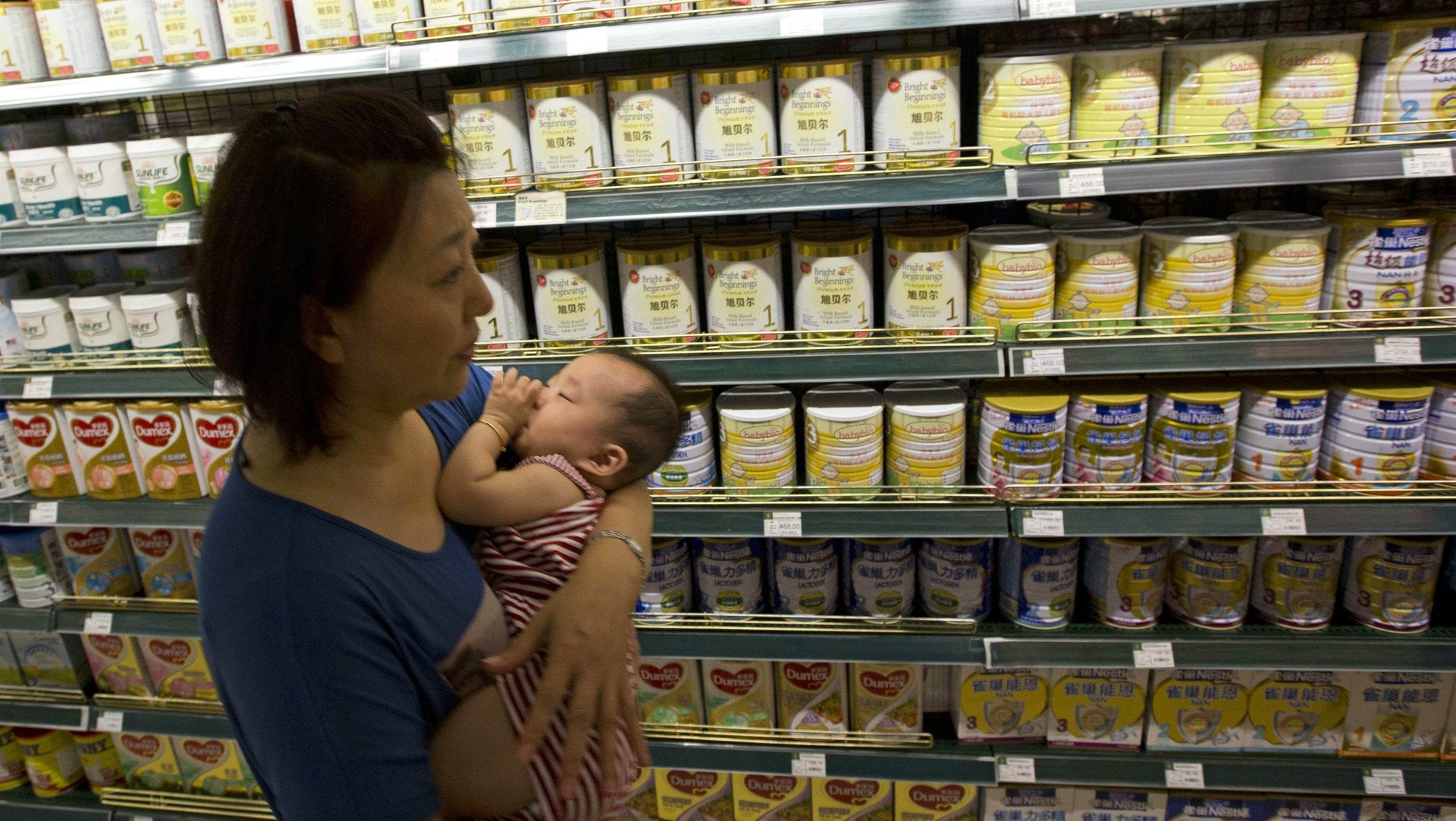Despite tainted baby formula, Chinese women still shun breastfeeding
The recall of up to 1,000 metric tons of New Zealand milk powder contaminated with botulism-causing bacteria must leave a sour taste for millions of Chinese parents who have gone to enormous lengths and expense to buy foreign infant formula they thought was safer than domestic brands.


The recall of up to 1,000 metric tons of New Zealand milk powder contaminated with botulism-causing bacteria must leave a sour taste for millions of Chinese parents who have gone to enormous lengths and expense to buy foreign infant formula they thought was safer than domestic brands.
But it is doubly frustrating for the Chinese government and international health organizations, who have tried fruitlessly for years to promote a free, worry-free alternative: convincing women to forsake infant formula and breastfeed their babies.
China consumes immense and growing amounts of baby formula, dwarfing the appetite of the rest of the world—$15.4 billion in sales last year, four time the US, and a 29% increase from the year before. Imports accounted for some $1.9 billion in sales per year, 90% of which comes from New Zealand.
Those figures don’t take into account the unofficial import route of mainland Chinese tourists bringing back formula from Hong Kong and foreign countries, imports so vast that countries have begun cracking down on these purchases on fears that they could cause domestic shortages. A voracious appetite for foreign formula can be traced directly to a 2008 scandal in which more than 20 Chinese formula manufacturers were found to be adulterating their products with melamine—a toxic chemical that was added to boost the apparent protein content of the formula.
China’s appetite for baby formula is underpinned not just by the country’s huge population, but by the fact that it has some of the world’s lowest rates of breastfeeding for infants younger than six months—only 28%, according to Chinese health authorities, compared to a global average of 40%, and about 46% in the United States and India.
The World Health Organization found in a 2010 study that only 13.6% of babies in rural central and western China were exclusively breastfed through their fifth and sixth month. The situation may be even worse in China’s rapidly swelling urban areas; the WHO noted that “there is evidence that, globally, infant and young child feeding practices may be better among the poor than the rich and, in China, that breastfeeding is less common in urban than in rural areas.”
The WHO unequivocally endorses breastfeeding because breast milk contains antibodies from the mother that drastically reduce the risk of infections, it is free and can’t be corrupted by contaminated water like formula.
China’s breastfeeding rates are low for a variety of cultural and societal reasons—long working hours, short maternity leaves, the prevalence of mothers who migrate from their villages for work and leave infants with their families and scarce nursing facilities all play a role—but can also be attributed to the intensive marketing of infant formula. A Save the Children study released this year targeting Nestle and Danone said that 40% of new mothers they interviewed in China had been directly contacted by a baby food company representative, often in the hospital (presumably just after they gave birth) and most of those mothers had received free samples of the product.
“There is no cultural experience of breastfeeding,” said Caroline Carson, a La Leche League leader in Hong Kong. In Hong Kong, new mothers’ own mothers never breastfed, nor did their grandmothers, she said. Thanks to decades of advertising, there’s a belief that “formula is better for your baby,” she said. “Not just as good as but better.”
China’s government has made attempts at encouraging breastfeeding, setting up a website to promote breast-feeding, encouraging employers to offer areas for women to breastfeed, and curbing some advertising of breast-milk substitutes. But these curbs have had “little impact,” the WHO says, and consumption of infant formula increased nearly threefold between 2003 and 2008, and could double again by 2013.
In the wake of the New Zealand recall by Fonterra, whose contaminated whey products are also used in sports drinks and a host of other products, China and other countries have halted imports of New Zealand milk powder, leaving parents with a difficult dilemma: take a chance with Chinese brands, find a company that sells formula in China that doesn’t use Fonterra powder, or somehow obtain formula through friends and relatives abroad. New mothers may also embrace a more natural option—coincidentally, the recall happened to take place during World Breast Feeding Awareness Week.
Chen Yifei contributed reporting to this article.